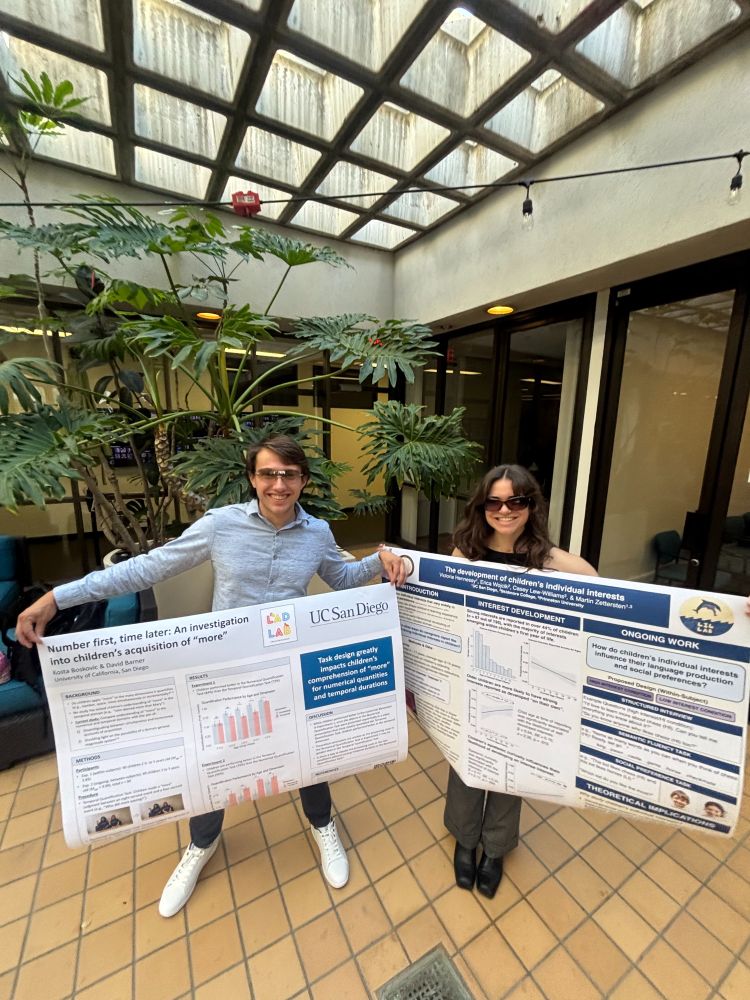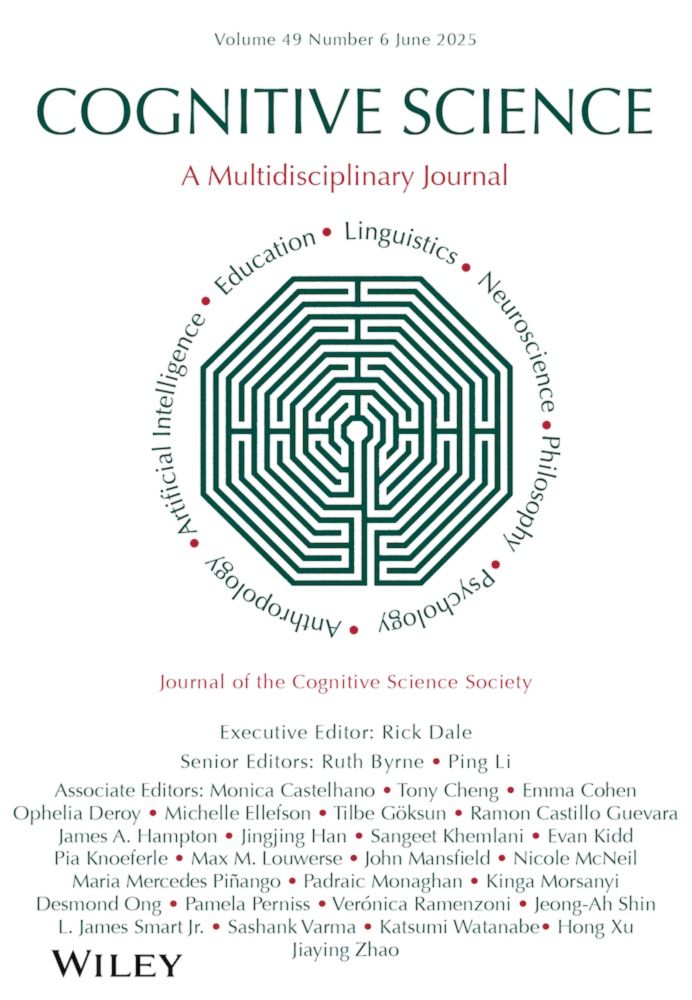
Exact numerical reasoning in blind children and adults
What is the origin of exact numerical reasoning in humans? Previous studies report that innumerate humans are unable to recognize that two sets placed…
Just in: @drbarner.bsky.social & I find that blind adults and children who have symbols for large numbers, and use 1:1 correspondence to count, do not extend a similar 1:1 strategy to a set-matching task, which assesses their knowledge of Hume’s principle. A 🧵:
www.sciencedirect.com/science/arti...
26.10.2025 00:48 — 👍 23 🔁 8 💬 2 📌 1
Male and female for both?
06.10.2025 12:34 — 👍 0 🔁 0 💬 0 📌 0
Just did, thanks for sharing!
30.09.2025 02:30 — 👍 1 🔁 0 💬 0 📌 0
Extremely disappointing decision from the NSF today to exclude second-year graduate students from eligibility for the GRFP. I and many other second-year grads purposely held off from applying in our first year to be able to do so now...
26.09.2025 17:25 — 👍 18 🔁 4 💬 1 📌 2

Thrilled to have another CogSci in the books!
Curious about how children learn what age is? Check out my poster with @drbarner.bsky.social here: qr.codes/yjFi54
20.08.2025 00:28 — 👍 7 🔁 1 💬 0 📌 0

We were lucky to receive so much support from members of our Departments of Psychology and Cognitive Science, including @asmithflores.bsky.social who coined SoCal MInDS, Salih Özdemir who created our logo, and Tori Hennessy and @kostaboskovic.bsky.social who affirmed that our science is COOL! 😎
21.05.2025 00:48 — 👍 4 🔁 1 💬 1 📌 0
An eggcellent trip you might say
21.03.2025 20:25 — 👍 1 🔁 0 💬 1 📌 0
ICREA Research Professor. Evolution, Genetics, Neuroscience, Linguistic Cognition
Graduate researcher at the University of California, San Diego, studying memory, metacognition, and misinformation.
[he/him] 🇧🇷🏳️🌈| studying how children learn language and logical terms
Psych professor, interested in child language and attention, but also running, visiting National Parks, and reproductive justice. Views are mine. She/her.
EiC team: Johan Wagemans, Ian Dobbins, Ori Friedman, and Katrien Segaert
Asst Prof of Psychology @ Vassar | Formerly @ Wesleyan, Tufts, Boston U, Harvard, & SUNY | 🏳️🌈 she/her | studying kids' ideas abt identity & inequality
Asst. Prof. in Psychological and Brain Sciences and Anthropology @ UC Santa Barbara | UC PPFP Fellow | Fascinated by great ape social cognition!
https://www.laurasimonelewis.com/
https://www.originsofmindlab.com/
Departments of Psychology and Linguistics, Director of the Undergraduate Cognitive Science Program, Univ. of Southern California @USC. Language and cognition.
https://dornsife.usc.edu/tobenmintz/
Gopnik Lab Manager | UCSD Psych Alum :)
The International Congress of Infant Studies is a not-for-profit organization devoted to the promotion of research on the development of infants
https://infantstudies.org/
Rubicon research fellow at the University of Cambridge. Drinking massive amounts of tea and doing some research in between. Learning, information-seeking, cognitive and brain development. Comp modelling ethusiast. He/him. 🍉
https://francescpoli.github.io/
Developmental psychologist studying children's thinking and learning | Prof @ UTD | @cogdevsoc secretary
Psych professor @UCSD, PI of the Early Learning & Cognition Lab
phd candidate in psychology @ NYU studying development + social cognition
I study language using tools from cognitive science and neuroscience. I also like snuggles.
Cognitive scientist, philosopher, and psychologist at Berkeley, author of The Scientist in the Crib, The Philosophical Baby and The Gardener and the Carpenter and grandmother of six.
Promoting Cognitive Science as a discipline and fostering scientific interchange among researchers in various areas.
🌐 https://cognitivesciencesociety.org
linguist, experimental work on meaning (lexical semantics), language use, representation, learning, constructionist usage-based approach, Princeton U https://adele.scholar.princeton.edu/publications/topic
Developmental Psych | prof @Concordia | Language acquisition | Bilingualism | Infants & toddlers | Open science | R | Women in science






